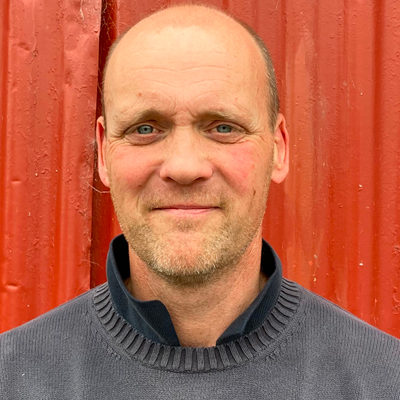
Roger Blyth
Regional Winner | Productivity category
Canterbury, NZ
Roger Blyth is an adviser at Seed and Field Services South Island and a 2020 Growth Awards Regional Winner in the Productivity category. Read on to learn more about Roger.
What’s the one thing you have done in your career you are most proud of?
It may have been some time ago, but I was awarded the UK Potato Grower of the Year in 2000. It acknowledged the thought process that I have maintained to this day in terms of the way potato production is managed for maximum efficiency and productivity. It was judged by people in the industry I held in high regard so that made it extra special. It was early in my career, but I have managed to take the philosophies from then and apply them in a different hemisphere. The UK industry is very technical and forward thinking. I was working in a number of crops but realised it was better to specialise in an industry where there can be huge risk and potentially huge returns.
How will you share what you learn with others in the industry?
Sharing information is what I do an awful lot of in my everyday role. I speak with each of our growers every week in each of their paddocks, so there is face-to-face communication. I also run grower meetings where the latest information is shared.
Through my role, I sit on a lot of panels outside the business, and I also have strong interaction with people in the industry I have met through travelling in the United States, the United Kingdom and Europe.
What do you see as your biggest opportunity in the next 12 months?
I’d like to see our growers get closer to holding the top spot when it comes to the global processing potatoes cost of production and at the same time, the highest level of production. My goal is to increase the level of production of our growers – they are doing pretty well now averaging around 80t/ha but there is more production to be had. My goal in the next three years is to have that production up to 100t/ha of saleable potatoes. It’s perfectly feasible to think we can achieve this. We have smart farmers, and the technology is available. It’s about getting the basics right and the right technology.
What is the biggest barrier to achieving success in the next 12 months?
Something that could rear its head in the next year is based around political decision making. We are looking down the barrel of another term of a Labour/Greens government who have already put limits on the amount of nitrogen that dairy farmers can use. Those decisions are based on bad science which is then used in a draconian manner.
It comes down to nutrient levels determining output levels so it’s one of the biggest challenges we are facing if we are limited with nutrient use. It seems at the political level that science and technology is thrown out the window. We are looking at crops on a weekly basis and our potato growers are technically astute and demand a high level of advice. It’s not like we throw fertilisers and chemicals out there for the fun of it. It’s why I sit on industry panels – there is no commercial gain, but it is the right thing to do to get the correct message across.
What is the biggest challenge New Zealand Ag has to overcome in the next 10 years?
It’s more than an Australian-New Zealand challenge, but a global challenge – how to educate the general community about the good that agriculture is doing in the world. We are not good at telling our story, but we need to be. We need to make people realise that using things like fertiliser to improve nutrition means production. Crop nutrition and protection has a huge target on it now and the community is told that the industry is using ‘Frankenstein’ science. I worked in crop protection development for several years and one of the scientists said the level of safety built into them is like a car having a braking distance of 700km. I counter the ‘Frankenstein’ science with facts like humans have never lived longer, and they are eating better food than they ever have. We need to tell people what a good job we are doing in agriculture – farmers don’t want a chemical wasteland but want to pass on their farms to the next generation and don’t want to degrade them. It’s a political challenge as well as the public perception that needs to change.
